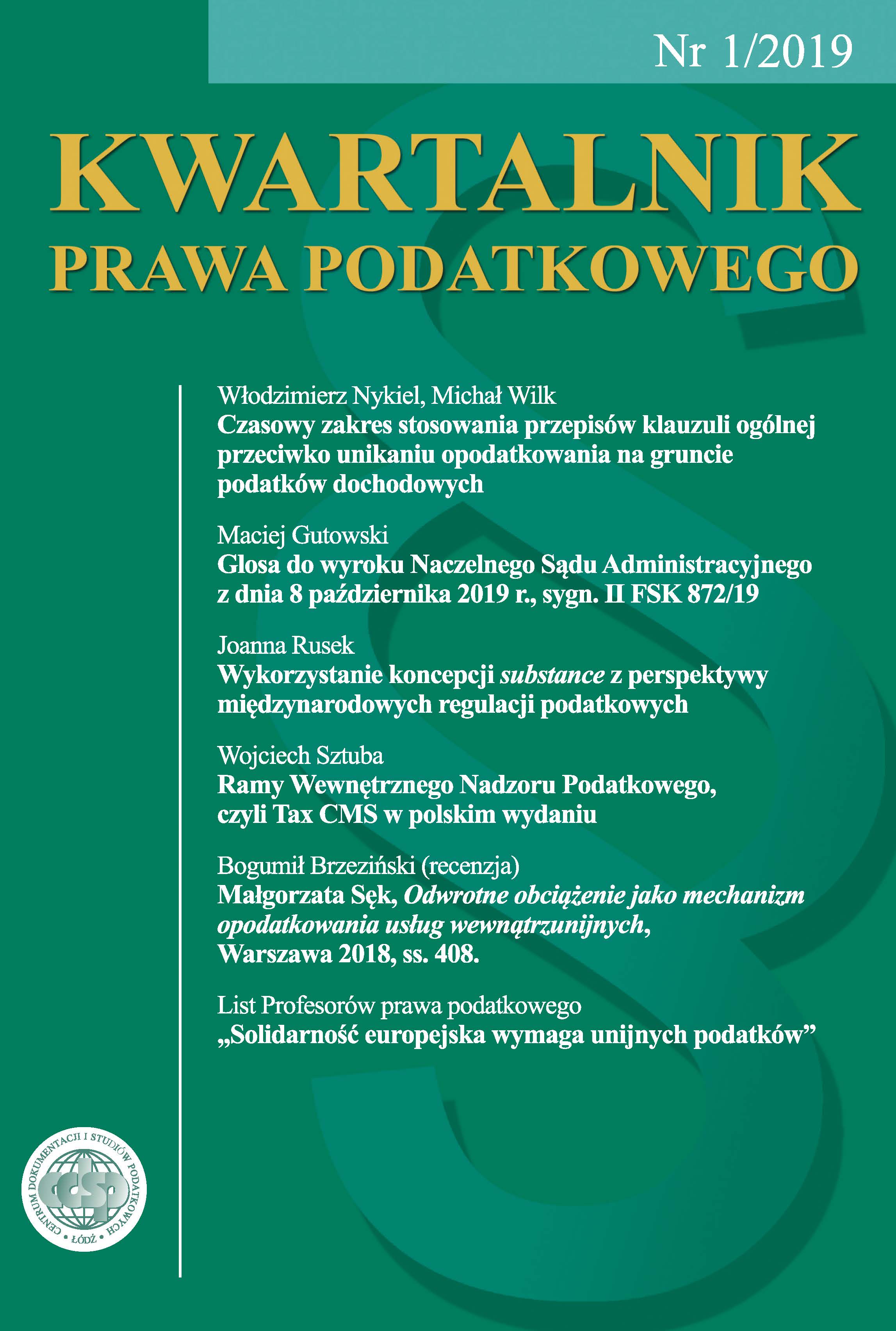Ramy Wewnętrznego Nadzoru Podatkowego, czyli Tax CMS w polskim wydaniu
Internal Tax Supervision Framework. Polish regulatory attempt to Tax CMS
Author(s): Wojciech SztubaSubject(s): Law, Constitution, Jurisprudence
Published by: Wydawnictwo Uniwersytetu Łódzkiego
Keywords: horizontal monitoring; Internal Tax Supervision Framework; Tax CMS; CMS; tax compliance; tax compliance management; tax risk; tax risk management; tax compliance management system
Summary/Abstract: Polish tax system has experienced deep regulatory changes resulting from OECD/G20 recommendations (BEPS), EU law impact and local policies aiming at anti-avoidance. Also, the level of penalisation has increased both for enterprises and their representatives. On the other hand, the detectability of tax arrears has sharply been raised due to digital information technologies that allow higher transparency and fasted insight into taxpayers’ situation. As a result, the tax exposure is significantly higher now, both for corporates and persons in charge for tax compliance. The need to efficiently mitigate the extended tax risk spectrum is therefore higher than ever. In the largest organisations complex tax risk management structures are created as a best practice i.e. non mandatory. Polish law sets forth only general duties e.g. for the management board of the companies to assure internal control necessary to provide proper financial reporting including tax. Precise indices o how to build such internal tax control system are missing. Raising tax exposure motivates MNE’s to reach out to complex tax compliance management tools. An additional and important reason for Polish firms to do so may become the new Chapter IIB. Co-operation of the Polish Tax Ordinance Act that is going to enter into force on July 1st. These new horizontal-monitoring-regulations allow the largest companies to conclude the Co-operation Agreement with Polish tax administration, as a result of which a list of tax benefits may be enjoyed, such as lack of tax inspections or no DAC-6 duties (mandatory disclosure) on local arrangements. In order to close such an agreement tax payers will have to fulfil inter alia a condition to implement the so-called Internal Tax Control Framework. The Ministry of Finance recently published the remarks on such a Framework and what kind of criteria must it meet, but without indices on how to execute it. What the Tax Ordinance Act calls Internal Tax Control Framework represents a kind of Tax Compliance Management System, many of which have broadly been used in foreign jurisdictions so far. Author of the article is making reference to German experiences, as in Germany there is an extensive doctrine and business practice in place, as regards implementation of Tax CMS based on audit standard IDW PS 980 published by German Institute of Chartered Accountants. Implementing Tax CMS in Polish firms in reliance on well tested foreign standards may constitute an optimal way to manage tax exposure in times when our local practice has yet to start to be accumulated. Moreover, adopting Tax CMS in such form shall enable to meet the conditions to close the Co-operation Agreement that besides better tax safety offers also additional benefits.
Journal: Kwartalnik Prawa Podatkowego
- Issue Year: 2019
- Issue No: 1
- Page Range: 61-72
- Page Count: 12
- Language: Polish

